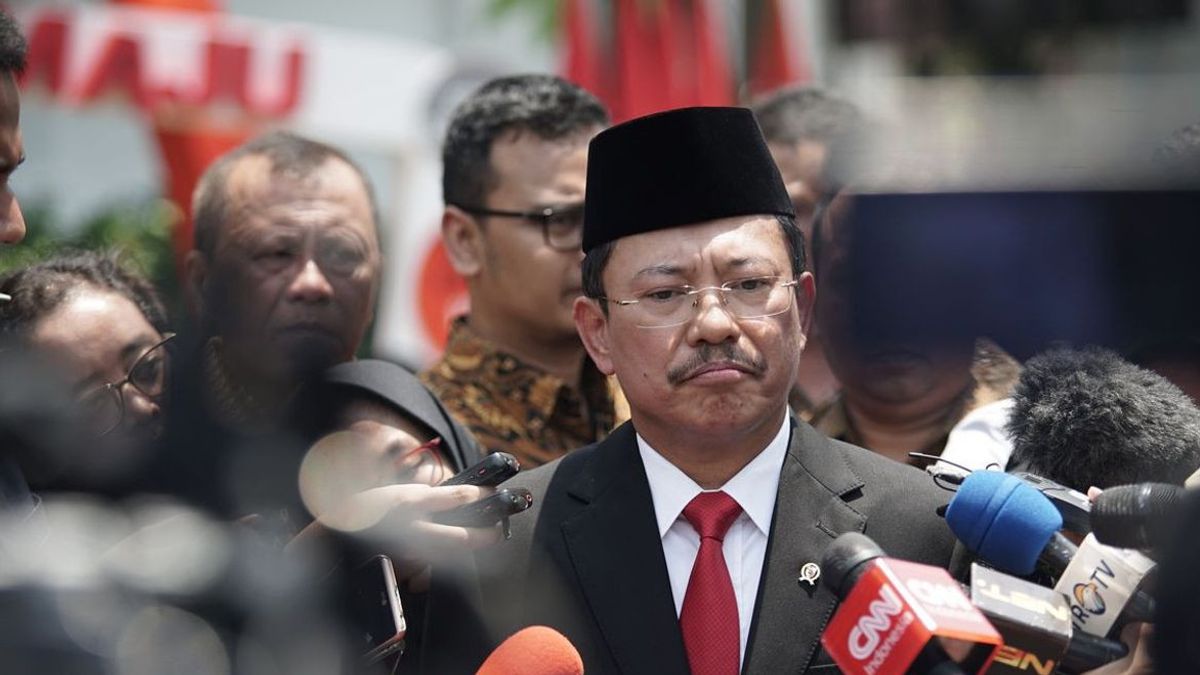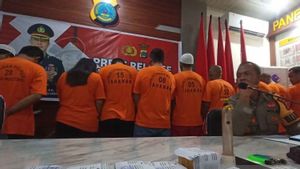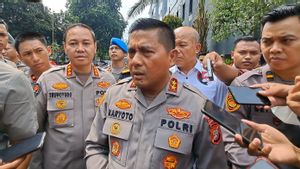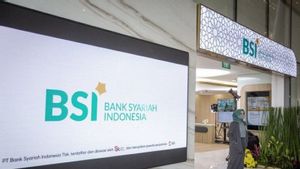JAKARTA - Minister of Health Terawan Agus Putranto asked all parties, especially those engaged in the health sector, to pay attention to the rules for managing medical waste, especially during the COVID-19 pandemic. This needs to be done to prevent transmission of the virus due to medical waste.
"I invite and call on all stakeholders, especially those in health teachings throughout Indonesia and other sectors to encourage the implementation of medical waste management practices according to requirements in order to prevent COVID-19 and other infectious diseases," said Terawan in the National Call for Acceleration of Waste Management. Medical broadcast on the Ministry of Health's YouTube account, Friday, November 13.
Medical waste, continued Terawan, is very dangerous and toxic so that it can have an impact on human life and the environment.
For this reason, Terawan requested that all health facilities provide facilities and infrastructure for medical waste management in accordance with standards. The local government, said Terawan, must provide support so that medical waste management can be carried out properly and correctly.
Furthermore, the former Head of the Central Army Hospital (RSPAD) Gatot Subroto also asked for guidance and supervision by local governments both provincial and district / city in accordance with their authority.
In addition, Terawan also requested that medical waste management be appropriate to capacity, local wisdom, and local conditions. So, everything is done effectively and efficiently.
"The management of medical waste that is fast, close, precise, and accurate can protect humans and the environment from the dangers of disease and pollution," he said.
Still at the same event, Minister of Home Affairs (Mendagri) Tito Karnavian also conveyed the same thing regarding medical waste. He said that the waste that enters the waste of hazardous and toxic materials (B3) is dangerous for the community and the environment if not handled seriously because it could contain dangerous chemicals, pathogens, or viruses and bacteria.
Although currently the management of medical waste or other hazardous waste has been regulated in Law Number 32 of 2009 concerning Environmental Protection and Management, there needs to be further appropriate handling.
Therefore, this former National Police Chief asked the provincial, district and city governments to accelerate and develop medical waste management in his area by making separate regulations regarding waste management and sanctions for violators.
"For the rules, a program for assistance and sanctions will be made. Even if necessary, with budget support in accordance with each fiscal space," said Tito.
Not only that, through letter number 440/2804 / Otda dated May 27, 2020, the Ministry of Home Affairs has instructed each governor to strive to improve the performance of medical waste and B3 waste management, especially in quarantine and treatment facilities for COVID-19 patients.
In the letter, continued Tito, the Ministry of Home Affairs had ordered special management of medical and B3 waste in health facilities and quarantine for COVID-19 patients, as well as places that could potentially contain the virus.
As supporting advice, local governments can form a regional technical implementation unit (UPTD) in charge of medical and B3 waste management based on Permendagri No.12 / 2017 Guidelines for the Establishment and Classification of Service Branches and Regional Technical Implementing Units.
"So the legal basis already exists," he concluded.
The English, Chinese, Japanese, Arabic, and French versions are automatically generated by the AI. So there may still be inaccuracies in translating, please always see Indonesian as our main language. (system supported by DigitalSiber.id)













